As the world watches the unfolding Russian invasion of Ukraine, experts across Emory University are assessing the humanitarian, legal, economic and political ramifications of the conflict and sharing their insights with media and the larger community.
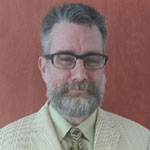
Matthew Payne
History
Matthew Payne, associate professor of history at Emory, teaches courses on modern Russian and Soviet history, including “The History of Now,” which aims to help students understand the roots of current conflicts.
- The Russian Federation did not invade Ukraine this week, it invaded eight years ago. This has been an ongoing war that has produced millions of displaced refugees and tens of thousands of casualties. This is an escalation to a war of conquest.
- Vladimir Putin’s speech denying Ukraine a national identity is not, of course, historically accurate but relates to Russian Imperial ideologues’ denial of that identity in the late 19th century. As the Tsarist authorities engaged in rigorous Russification efforts deploying this ideological pseudo-history, it is not insane or propaganda. I read it as a political program of Russification.
- The Russian Federation has long been invading places and engaging is very brutal forms of warfare. The First and Second Chechen Wars were particularly shocking, as even a casual glance of the destruction of Grozny indicates. The Georgian War was more restrained but the pro-Assad intervention was very deadly to civilians. This is modern war and more civilians will die in this war than soldiers. If the Ukrainians hold out in the major cities, I predict a very high number of refugees and casualties given the Russian Federation’s past track record.
'History of Now' helps students understand roots of current conflicts
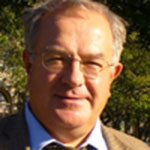
Nikolay Koposov
Russian and East Asian Studies
Nikolay Koposov, professor of practice at Georgia Tech and visiting professor in Emory’s Department of Russian and East Asian Studies, is an expert on Putin’s Russia and the author of “Memory Laws, Memory Wars: The Politics of the Past in Europe and Russia.”
- The fate of Ukraine in now in the Ukrainians’ hands — nobody will fight together with them, even though many sympathize with them and want to help. So far, the Ukrainian army and militia demonstrate a lot of courage in defending their country. The first day was not very successful for the invaders, but this does not mean much, because they may have been simply trying to see where the Ukrainian defense system is most vulnerable.
- Putin is personally responsible for all that, and he has no overwhelming support among ordinary Russians and even among his collaborators. He has absolutely intentionally presented this war as HIS war — his reputation and power are at stake and he will defend, above everything else, himself trying to win this war at as low cost as possible. A long war with many Russian dead bodies may cost him his power and life.
- Putin will most likely try to seize Kiev using airborne forces as soon as possible to install a puppet government. His further strategy is likely to be the "ukrainization" of the conflict, on the model of the “chechenization” of the war in Chechnya. It is not excluded, however, that he will occupy some parts of Ukraine, but most of it will (if he succeeds) be ruled by a puppet government. There are many Ukrainian oligarchs and politicians who are likely to accept the role.
- His next steps (in a few months and if he is successful) may be:
- The concentration of Russian forces on the Polish border (and perhaps on the border of the Baltic countries) to force them to withdraw from NATO instead of attacking them. What he is currently doing in Ukraine must convince these countries that he is not joking;
- Annexing parts of Ukraine plus Belarus and establishing a new state — something like Union of Slavic Republics, USR instead of USSR (Lukashenko can be offered the position of the USR prime minister or just eliminated).
How ‘Memory Wars’ Fuel the Conflict in Russia and Ukraine
Ukraine/Russia: Understanding the Conflict

Laurie Blank
Law
Laurie Blank, clinical professor of law and director of the International Humanitarian Law Clinic at Emory Law, is an expert on armed conflict, national security law and international criminal law. A member of the Homeland Security Academic Advisory Council Subcommittee on Countering Violent Extremism, Blank teaches the law of armed conflict and works with students to provide assistance to international tribunals, non-governmental organizations and militaries around the world on cutting edge issues in humanitarian law and human rights.
- We are witnessing flagrant violations of international law. Our international system since 1945 and the founding of the United Nations is based on respect for state sovereignty and territorial integrity and rests on the prohibition of the use of force as the pillar of maintaining international peace and security. We’re seeing that being violated right now.
- One thing to remember in all the conversation about big countries and great power competition is that war is brutal. It’s brutal on the civilian population. We want to keep in mind that war causes an enormous amount of suffering, for civilians, for those who are fighting, and we can’t lose sight of that. We have rules to protect the civilian population, and it’s essential — apart from rules to try to prevent this war from coming in the first place — to make sure that people are protected in the midst of the fighting.
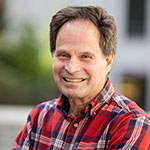
Alan Abramowitz
Political Science
Alan Abramowitz, professor of political science emeritus, is an expert on U.S. national politics, polling and elections. His expertise includes forecasting models, party realignment in the U.S., congressional elections and the effects of political campaigns on the electorate.
- The Russian invasion of Ukraine poses major challenges to American political leaders. President Biden will be judged by how effectively he responds to Russian aggression, but also by the consequences of any U.S. actions for the American economy.
- At the same time the invasion has exposed deep rifts within the Republican Party between traditional foreign policy hawks and pro-Trump isolationists, with some conservative media figures going so far as to praise Putin. This issue could provide further motivation for mainstream conservatives to distance themselves from the former president, especially as the human toll of the invasion is brought home to Americans by the news.
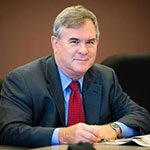
Raymond Hill
Finance
Raymond Hill, senior lecturer in finance at Goizueta Business School, specializes in managerial economics, monetary policy, energy economics and finance. He is a former investment banker and CEO of one of the largest power companies in Asia.
- The sanctions that have been put in place are not going to deter Putin very much. I think it’s wise to limit technology exports to Russia; that’s going to have a long-term effect. But the financial sanctions put in place are really pretty minimal at this stage. Russia can work around those. For example, cutting off the North Stream Pipeline is something that will hurt Russia in the future, but not today.
- Biden hasn’t been able to convince our European allies to kick Russia out of SWIFT. That would be very, very painful. That’s a more severe step. The other steps are ones that end up hurting us, hurting the Europeans certainly, which include trying to block access to world oil markets, or Europe saying they’re not going to buy Russian natural gas. That would mean Europeans wouldn’t have any natural gas to heat their homes. The U.S. has plenty of energy, and we can produce more than we’re doing, so we’re fairly immune to that. We are going to see higher gasoline prices for a while because of the recent jump in oil prices, but when U.S. producers respond, I don’t expect these prices to last.
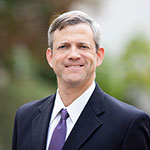
Dan Reiter
Political Science
Dan Reiter, Samuel Candler Dobbs Professor of Political Science, studies interstate conflict, civil-military relations, alliances, military effectiveness, public opinion and foreign policy, and war termination. He has written three books: “Crucible of Beliefs: Learning, Alliances, and World Wars,” “Democracies at War,” and “How Wars End.”
- The recent Russian invasion of Ukraine demonstrates the importance that politics within nations have for understanding politics between nations. Russian President Vladimir Putin has steadily eroded checks on his power within Russia by substantially undermining the political opposition, free media and speech, and the Russian legislature (Duma). A free political hand domestically has given Putin the opportunity to wage an unnecessary war that will clearly impose great economic and diplomatic costs on Russia, confident that he will likely not be thrown from power.
- This is a pattern that has repeatedly appeared in history — leaders sometimes strengthening their autocratic grip soon after coming to power, and then proceeding to launch wars of aggression. Adolf Hitler burned the German Reichstag parliament building soon after coming to power in 1933, and soon thereafter arrested hundreds of thousands of political opponents. Iraqi leader Saddam Hussein engaged in massive purges prior to invading Iran in 1980.
- Chinese President Xi Jinping’s recent consolidation of his internal political power may set the stage for future Chinese aggression against Taiwan or within the South China Sea more generally.
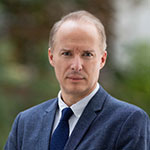
Hubert Tworzecki
Political Science
Hubert Tworzecki, associate professor of political science, teaches comparative politics, Eastern European politics, political behavior and survey research methods. He is the author of “Parties and Politics in Post-1989 Poland” and “Learning to Choose: Electoral Politics in East-Central Europe.”
- Last July, Putin wrote an article titled "On the Historical Unity of Russians and Ukrainians” (available online for those who wish to read it in full.) In this lengthy piece, he basically claims that Ukraine is not a real country, and Ukrainians are not a real nation. The same applies to Belarus.
- The roots of Putin's aggressive actions today lie in his sense of his own historic mission to "re-gather" these lands. Restoration of the old Soviet Union is beyond his reach for a variety of reasons, but some type of "union state" comprising Russia, Belarus and Ukraine (with the latter two being relegated to the status of de-facto Russian provinces) is the likely end goal of the present invasion.

